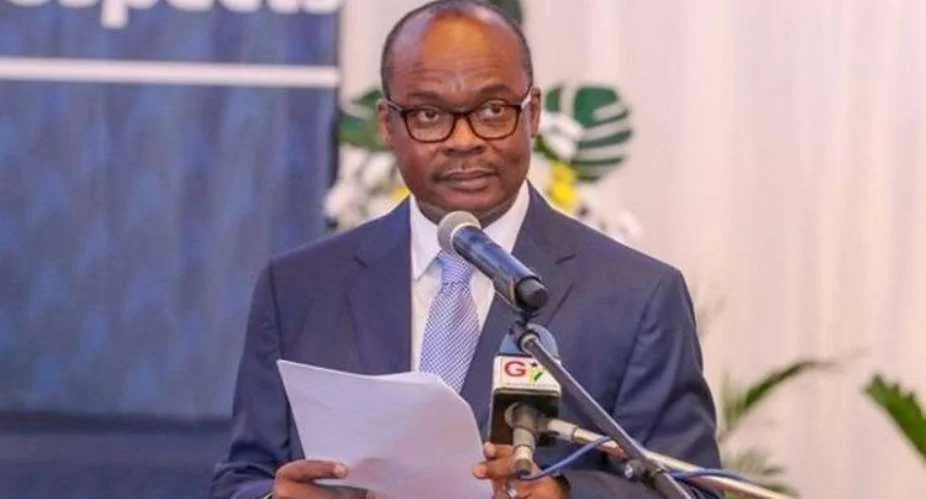On January 16, 2023, the Governor of the Bank of Ghana (BoG), Dr. Ernest Addison, addressed the Public Accounts Committee of Parliament, attributing the ongoing depreciation of the Ghanaian cedi to persistent economic pressures. Despite a brief appreciation in late 2022, the cedi’s value has continued to decline, prompting discussions on mitigating strategies, including the government’s innovative gold-for-oil policy.
Cedi’s Depreciation Driven by Economic Pressures
Dr. Addison explained that the cedi’s value reflects day-to-day pressures on Ghana’s economy, driven by factors such as high demand for foreign currency and significant transactions like payments to contractors. “If there is additional demand for cedis, the currency will be restricted. The Central Bank cannot fix the exchange rate; it depends on what transactions have taken place,” he stated. He noted that such payments often lead to immediate conversions into foreign exchange, exerting downward pressure on the cedi. After appreciating to GH¢8 to the US dollar in December 2022, the cedi had depreciated to GH¢13 per dollar by January 2023, highlighting its volatility.
Ghana’s economy, heavily reliant on imports, faces challenges from a limited supply of foreign currency, persistent current account deficits, and high inflation, which reached 52.2% in December 2022. These factors, compounded by global shocks like the COVID-19 pandemic and rising commodity prices, have intensified the cedi’s decline, which saw a 55% loss against the dollar from January to October 2022.
Gold-for-Oil Policy as a Mitigation Strategy
Dr. Addison highlighted the government’s gold-for-oil policy as a measure to alleviate pressure on the cedi. The initiative, which involves bartering Ghana’s gold for imported petroleum products, aims to reduce the demand for US dollars by oil marketing companies, thereby stabilizing the exchange rate. On January 15, 2023, Ghana received its first consignment of 40,000 metric tons of oil at Tema Port under a deal with the United Arab Emirates, as confirmed by the Ministry of Lands and Natural Resources. The Energy Ministry, alongside Bulk Oil Storage and Transportation (BOST) and oil marketing companies, is developing plans for the distribution and sale of this consignment.
The governor expressed optimism about the policy’s potential, noting that it could ease foreign exchange pressures and contribute to stabilizing domestic fuel prices. By May 2023, Dr. Addison reported that the policy had nearly doubled Ghana’s gold reserves from eight to 15 tonnes, strengthening the country’s foreign exchange reserves. However, critics, including Professor Godfred Bokpin, have questioned its long-term sustainability, arguing that it does not address fundamental economic issues like import dependence and fiscal discipline.
Broader Economic Context and Challenges
The cedi’s depreciation reflects deeper structural issues in Ghana’s economy, including a reliance on raw commodity exports like gold and cocoa, which leaves it vulnerable to global price fluctuations. A 2024 study noted that the cedi lost 40.05% of its value against the US dollar in 2022, alongside significant declines against other currencies like the British pound (21%) and Chinese yuan (34.98%). These trends have driven inflation and increased the cost of imports, particularly in sectors like oil and gas, agribusiness, and pharmaceuticals.
The BoG’s efforts to manage the cedi’s volatility, including restrictive monetary policies and foreign exchange auctions, have had limited success. Dr. Addison’s remarks underscore the central bank’s constrained ability to fix exchange rates in the face of market-driven pressures. The gold-for-oil policy, while innovative, is seen as a short-term measure, with long-term stability requiring broader reforms like export diversification and reduced import reliance.
Looking Ahead
As Ghana navigates its economic challenges, the success of initiatives like the gold-for-oil policy will be critical. However, addressing the cedi’s depreciation demands comprehensive strategies, including fiscal discipline and investment in local production. The BoG’s acknowledgment of economic pressures highlights the need for coordinated efforts to stabilize the currency and foster sustainable growth, particularly as Ghana pursues a $3 billion IMF bailout to bolster its economy.






